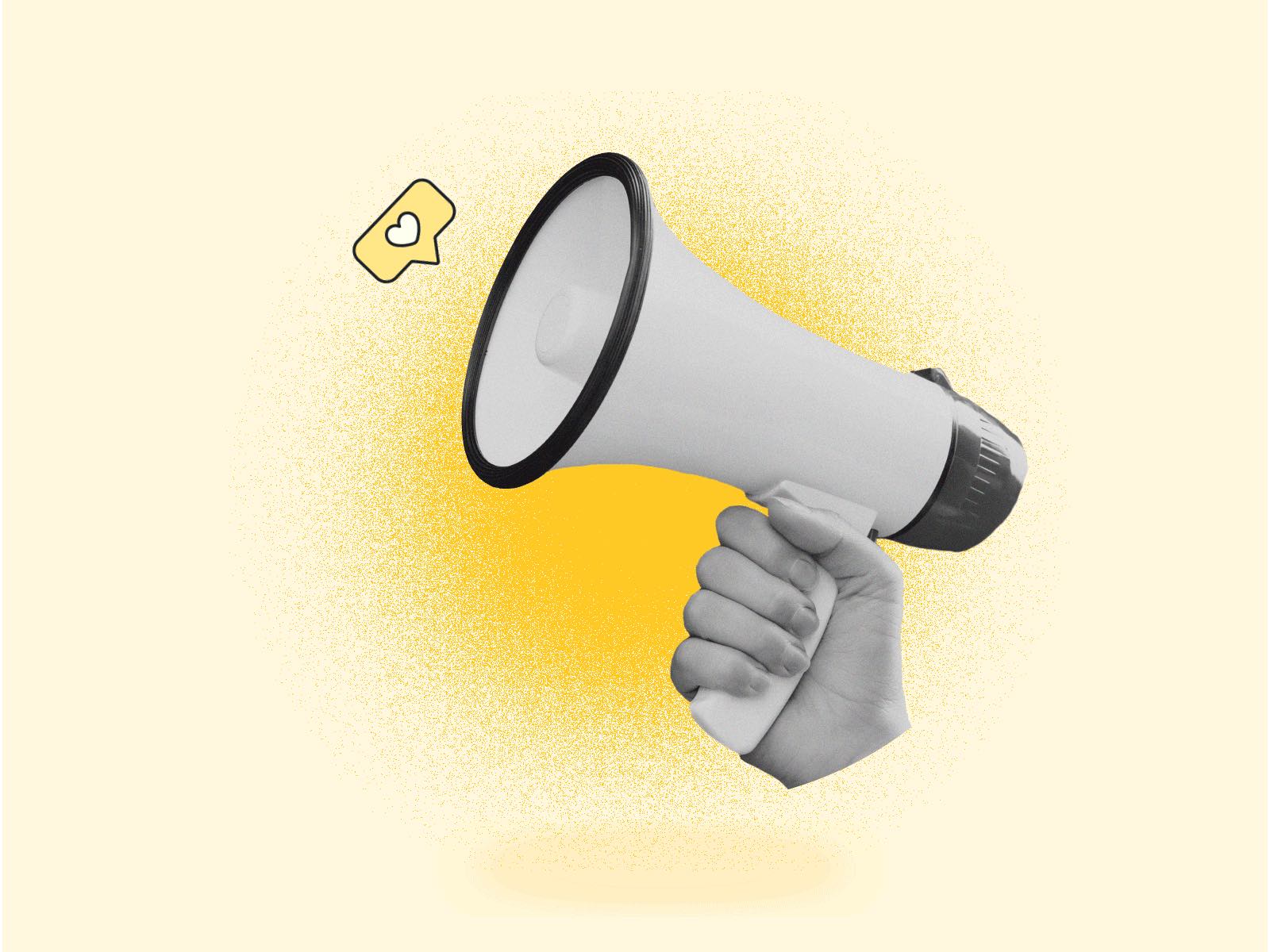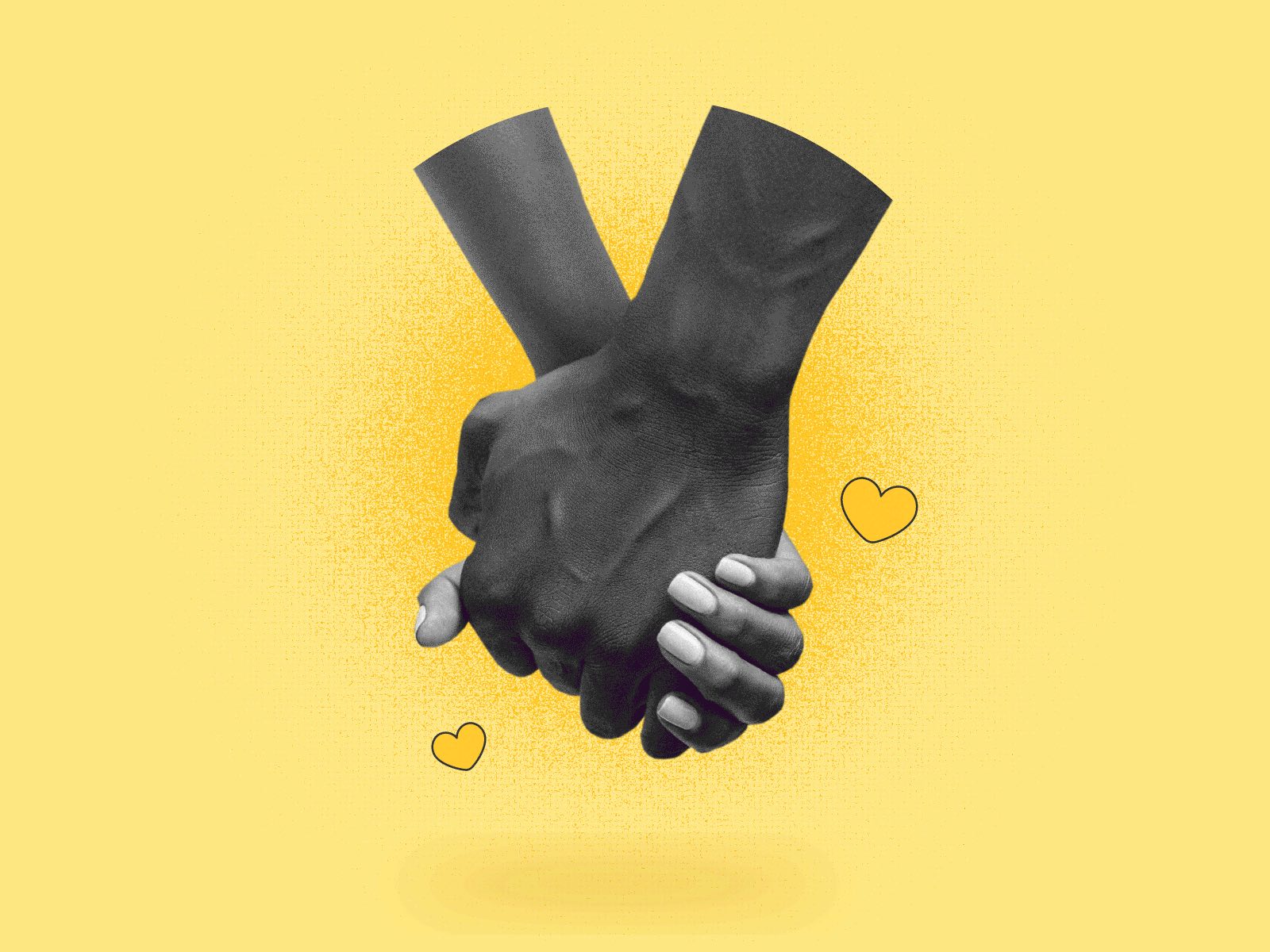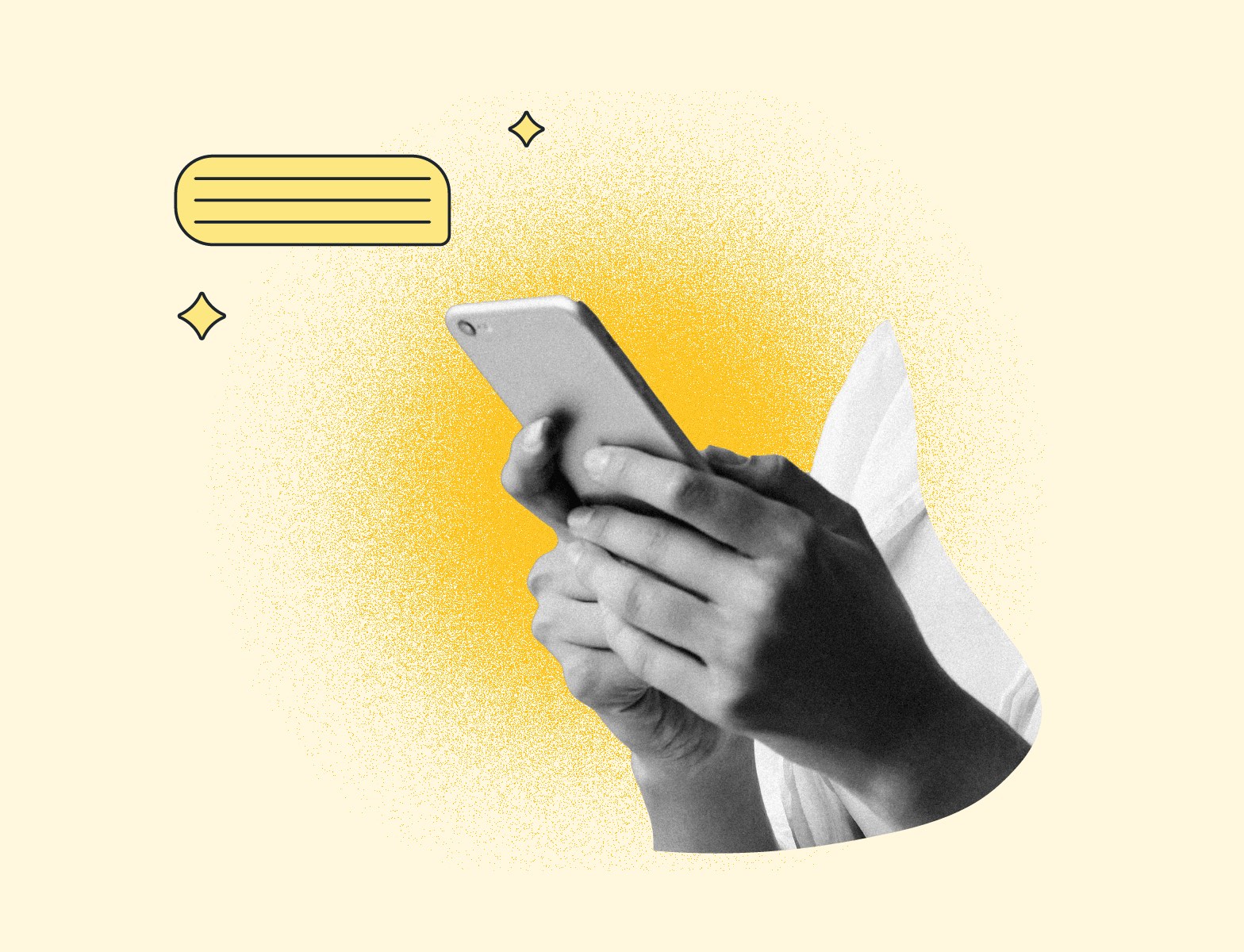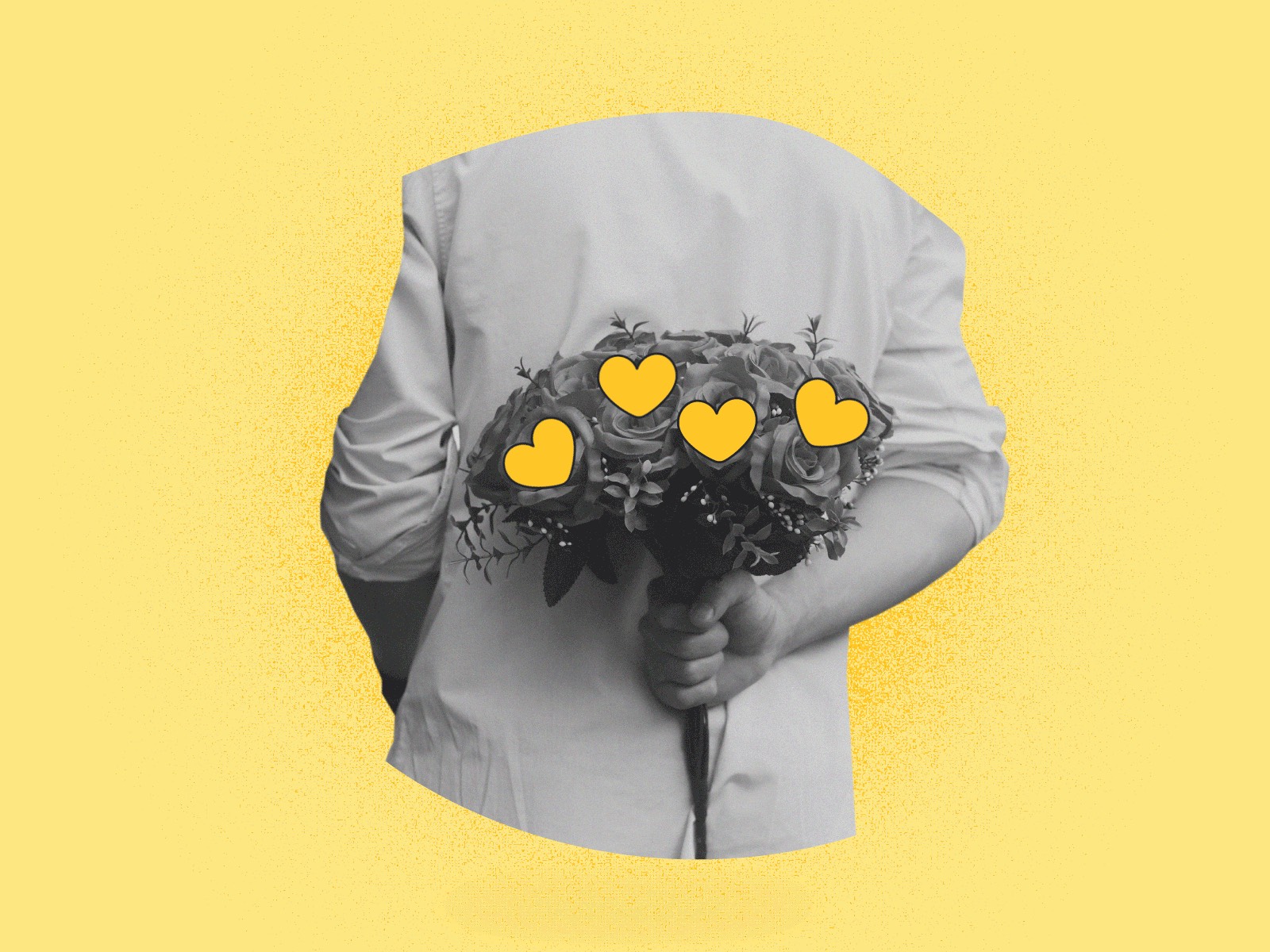The gender dynamics of dating
and relationships are outdated —
making it difficult to build
healthy and equal relationships.
We call this The Romance Gap.
Romance
Gap
(Noun, colloquial)
The discrepancy in behaviour expected from male/masculine presenting people and female/feminine presenting people when dating and in relationships.
Scroll Down
Why Now?
Why Bumble?
An unexamined Romance Gap limits all relationships and stops people from making meaningful connections. Because here’s the thing, traditional gender “norms” don’t just influence how we behave, but also how we think, including our perception of what is romantic, sexy and attractive in a partner and this has a very real world effect.
The Polls are in
Bumble commissioned a survey with YouGov across several key European countries* and found that 74% of adults surveyed agree that when it comes to romantic relationships and dating, different behaviours are expected based on your gender identity.
IT’S LIKE THE PAY GAP BUT FOR YOUR LOVE LIFE
Like the gender pay gap, or disparities in parental leave, the repercussions of The Romance Gap are vast because dating and relationships are such a fundamental part of life. For all the advances that have been made in the workplace, gender dynamics in dating and relationships are still not only accepted but expected, with 52% saying men are expected to take the lead both in asking someone out, but also initiating the first kiss. Only 8% expected the same from a woman.
“Men are expected to take the lead in dating and relationships”
YOU MIGHT NOT HAVE HEARD THE TERM BUT YOU’LL KNOW THE FEELING
Have you ever stopped to wonder why it is that when he admits he loves you after a month it’s passionate - if you do the same, it’s needy? Or why if he doesn’t text you back he’s playing it cool, if you don’t - you’re playing hard to get? The Romance Gap is holding many of us back from being our true selves when we’re dating. We know these “norms” aren’t fair but we haven’t challenged them. Until now.
WE’RE ALL PLAYING A ROLE
Just over 1 in 2 (52%) say the impact of gender roles makes people behave in a way that is less true to who they are. And 33% of women felt they have changed their behaviour to make someone feel more powerful or comfortable whilst dating or in a relationship. This is not ok. That’s a huge number of people acting inauthentically when dating because it’s ‘the done thing’. It’s no wonder that almost half (47%) say the impact of gender roles and behaviours makes dating and romantic relationships more stressful and difficult.
“Just over 1 in 2 (52%) say the impact of gender roles makes people behave in a way that is less true to who they are.”
EQUAL CONNECTIONS MAKE FOR EQUAL RELATIONSHIPS
From those small moments where you assume ‘he should send the first text’ (almost half of people surveyed say it’s important that women don’t appear desperate), to the big issues like why it’s awkward that you earn more money than him (only 5% believe women are expected to earn more) - too often romance starts from a place of gendered inequality, out of step with the more fair and fluid way we strive to live today. The bedrock of a relationship is formed in the first few months, and if it isn’t a level playing field at the start then, as time evolves, areas such as money, childcare and the division of emotional labour are also at risk of being unfairly influenced by gender expectations.
NO ONE BENEFITS FROM THE ROMANCE GAP
It’s not just women expected to hide their true feelings and adhere to outdated ideas of gender. 30% say men are expected to avoid appearing too keen, clingy or attached while at the same time 27% of men have felt the pressure to take the lead. It’s confusing and debilitating for everyone and stops both partners from making meaningful connections.
CHANGING THE NARRATIVE
Now that we have a name for it, it’s easier to call out. The only way to close The Romance Gap is to
acknowledge it exists and then challenge yourself and each other when you notice you’re slipping into
gendered tropes.
Start dating on your own terms. Show your true self and instead of making compromises, Make the First Move.
*All figures cited on this Romance Gap microsite, unless otherwise stated, are from YouGov Plc, research commissioned by Bumble. Total sample size was 6770 adults, of which 2069 are UK adults, 1053 are France adults, 1015 are Netherlands adults, 2129 are Germany adults and 504 are Ireland adults. Fieldwork was undertaken between 25th January - 4th February 2022. The survey was carried out online. The figures have been weighed and are representative of each of the countries respectively (Adults aged 18+).

74%
say that when it comes to romantic relationships, there are different expected behaviours based on your gender identity.

33%
of women surveyed have changed their behaviour to make someone feel more powerful or comfortable when dating and in a relationship.

Only 8%
of adults say women are expected to take the lead in dating and relationships.

29%
of women say men are expected to appear not to care when dating or in a relationship.
 />
/>
44%
say women are expected to not appear desperate when dating.

47%
say the impact of gender roles makes it more difficult to build equal relationships.
*All figures cited on this Romance Gap microsite, unless otherwise stated, are from YouGov Plc, research commissioned by Bumble. Total sample size was 6770 adults, of which 2069 are UK adults, 1053 are France adults, 1015 are Netherlands adults, 2129 are Germany adults and 504 are Ireland adults. Fieldwork was undertaken between 25th January - 4th February 2022. The survey was carried out online. The figures have been weighed and are representative of each of the countries respectively (Adults aged 18+).
Timing is key: Start the conversation when you have time to really explore it, when no one is tired, when you are in the right headspace and when there’s no need to rush it to a conclusion.
Keep it personal: Tell them about your personal experiences of dating and how things have made you feel rather than trying to make sweeping societal statements.
Listen: Don’t assume you’re the only one who has been a victim of the Romance Gap. They might also feel limited by gendered expectations so ask questions.
Be specific: Clearly articulate what it is you want to change. If you want to stop thinking twice before texting back straight away, in case it comes across as ‘desperate’, then perhaps they could also be a bit more communicative or ‘present’ in this respect.
Be Upfront: Don’t hide or conceal your values early on - a relationship is a long time to keep pretending.
Set some ground rules: What is and isn’t ok for you, now’s the chance to set boundaries.
Have a sense of humour: It’s a serious issue but it’s also dating, sex, romance and relationships we’re talking about here - it’s ok to laugh.
Gendered roles hold both men and women back from being themselves when dating. Meaning even if you aren’t affected by societal expectations you’re probably dating someone who is. This makes it more difficult for everyone, after all it’s hard to make a meaningful connection if one of you is playing a role rather than being themselves.
“49% of surveyed men say the impact of gender roles and behaviours makes people behave in a way that is less true to who they are.”
THE FACT SHEET:
Men are expected to:
- Take the lead. 52% say men are expected to take the lead (e.g. ask the person out, make the first move, initiate the first kiss, etc.), but only 8% say women are expected to take the lead.
- To earn more. 43% say men are expected to earn more money and be responsible for finances, but only 5% say this is expected of women.
- To not appear to care. 27% say men are expected to avoid appearing to care too much, or show too much emotion.
- To not give up. 1 in 5 (20%) say men are expected to not give up on pursuing someone.
- To take the lead sexually. Just over 1 in 5 (22%) say men are expected to be sexually direct and discuss their sexual wants/preferences.
*All figures cited on this Romance Gap microsite, unless otherwise stated, are from YouGov Plc, research commissioned by Bumble. Total sample size was 6770 adults, of which 2069 are UK adults, 1053 are France adults, 1015 are Netherlands adults, 2129 are Germany adults and 504 are Ireland adults. Fieldwork was undertaken between 25th January - 4th February 2022. The survey was carried out online. The figures have been weighed and are representative of each of the countries respectively (Adults aged 18+).
How can we expect equality in our relationships if we accept inequality at the very beginning? Writer Becky explores the long-term effects of changing her attitude to dating.
“Do you know how it felt to release myself from the shackles of this gendered emotional labour? Utterly freeing. I actually enjoyed the dating process.”
“Girls want a committed relationship and boys want freedom, it’s human nature. And even when you do lock down a slippery fella, you’re going to need to bend over backwards to make sure he doesn’t succumb to the call of the wild-” That’s the way I treated dating and relationships for years, in a bid to not scare off potential suitors. I went to emotionally painful extremes to make sure I came across easy breezy: never texting more than they did, never being the first to message after a date and fighting every one of my natural urges in the process. My worst fear was coming across needy or ‘too much’ – aka what many perceive as typical ‘women’ behaviour. ‘I’m not like a regular girlfriend, I’m a cool girlfriend’ was the mantra. I’d even lost out on one promising relationship because the not-texting-first standoff led him to look elsewhere and find someone new.
So, when I embarked upon a new relationship recently, I decided to call BS on the in-built biases that caused me to bite my tongue and allow him free reign over the rules of our courtship. I didn’t keep my weekend plans on standby in case he asked me to hang out last minute, because he’s ‘just not a planner’. I discarded the mental tit-for-tat list which logged who’s turn it was to ask who out. I even vocalised that I had no interest in being his personal assistant and would not be organising every outing or reminding him when his loved one’s birthdays were (yes, that really used to happen).
Do you know how it felt to release myself from the shackles of this gendered emotional labour? Utterly freeing. I actually enjoyed the dating process.
I didn’t realise how mentally draining this behaviour was until I went cold turkey. The routine inner turmoil dissipated as soon as I refused to lower my expectations and stop second guessing my every move. Expect more, get more; it really was that simple.
It turned out this method was a win-win for both of us. My now boyfriend appreciated how upfront I was with my standards; he knew where he stood and there was no underlying resentment bubbling away. We are two people authentically discovering what each other likes, dislikes and needs to feel happy and respected. Once I let go of the idea that a relationship is an inconvenience to a man (you could call this realising my worth), the less complicated it all became.
The pandemic forced a wake-up call for writer Shanice. Here she shares the moment she realised she deserved more and looks at what you can change now.
I met Leon* online and we quickly fell into an odd, casual relationship that was essentially rooted in our shared loneliness.
He was struggling after a messy breakup with an ex who also happened to be his boss, and I was working through the fallout of a recent split, too. We were the perfect pairing for a catastrophic rebound so I probably should’ve seen the drama coming, but apparently misery really does love company, so my need for comfort took over.
It’s definitely unconventional to support your fuck buddy through heartbreak, but we were both open about where we were at emotionally, so it seemed like we could be there for one another. I’d listen, sympathise and try to guide him through what were clearly very complex feelings and assumed that Leon would try to do the same for me, but sadly, that’s not what happened.
Leon would lean on me for support but judged me as needy when I asked for the same care to be extended to me. Even in more lighthearted moments where I’d bring up things I was excited by or interested in, he’d shut them down and dismiss them, or quickly bring the conversation back to himself. The realisation that he actually didn’t care enough to return the friendship I had shown him was hurtful, but I ignored it and swallowed it down, often making excuses for him or chastising myself for feeling needy.
Eventually, I got frustrated with the imbalance in our relationship and cut ties with Leon, but the habit of adjusting my behaviour to suit the men I was seeing lingered.
It crept in slyly at first. After spending my teens obsessed with boys and overthinking every interaction with them, I spent the following years trying to resist needlessly theorising in dating. But now, here I was, meticulously scrutinising messages before I sent them, conscious of how I was coming off or how keen I’d seem if I sent them too quickly. When getting ready for dates, I’d lean towards outfits that seemed more “feminine,” picking looks that I thought might appeal to them more. I didn’t realise it at the time, but I was trying to mould myself into the type of woman that I thought these men wanted.
The discrepancy between who I am in every other aspect of my life and who I became when dating is what’s really weird.
There were several more partners who demanded emotional labour from me and I’d find myself back in the role of a dutiful and constant listening ear, with my own needs pushed to one side.
The pandemic has been a wake up call for a lot of us about what we truly want and deserve in various areas in our lives. For me, the realisation that I don’t want to let the pressures of dating swallow me whole has been a huge one. I’m not interested in suppressing myself, and any man who makes me feel like I have to really isn’t worth the effort of doing so anyway.
Rejecting the idea that I need to be the perfect girlfriend or that I need to confine myself to rigid versions of womanhood has been a liberating step, I just wish I’d been able to take it sooner.
*Names have been changed.
How to close The Romance Gap in your dating life now:
- Stop worrying about whether they like you and instead spend that time thinking about whether you like them.
- Don't let the idea of how great things could be with someone cloud the reality of how things are now.
- Sounds simple but communicate with them how you’d like them to communicate with you. If you want prompt responses to messages, don’t make them wait days for a reply from you.
- Don't second guess your instincts! If there's a voice in your head telling you that you deserve more, listen to it.
- Regularly assess the balance in the relationship. Are they putting in the same level of effort and consideration that you are?
- Compromise can be important in relationships, but it doesn't automatically apply to every situation. It's okay to set hard boundaries and stick to them.
- Be yourself. The hardest advice to follow when faced with all the emotions of dating, but deep down we all know when we are pretending to be something we’re not or accepting behaviour that we wouldn’t accept in other areas of our lives.
Keep dating your way.
Keep closing The Romance Gap.
The Romance Gap.
It’s the reason they get to behave one way and you're expected to behave another. But this can, and must change. It starts when you date your way. It starts when you Make the First Move.





